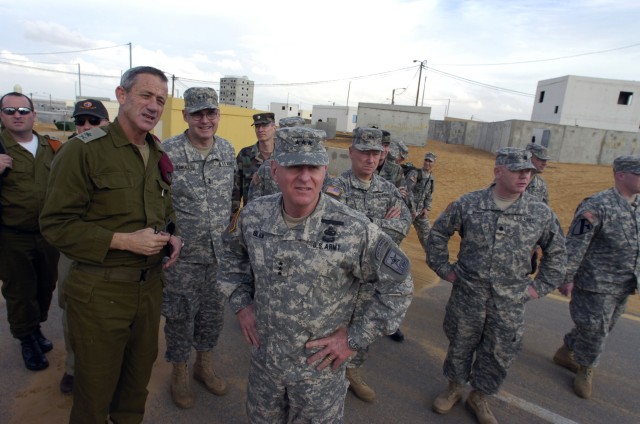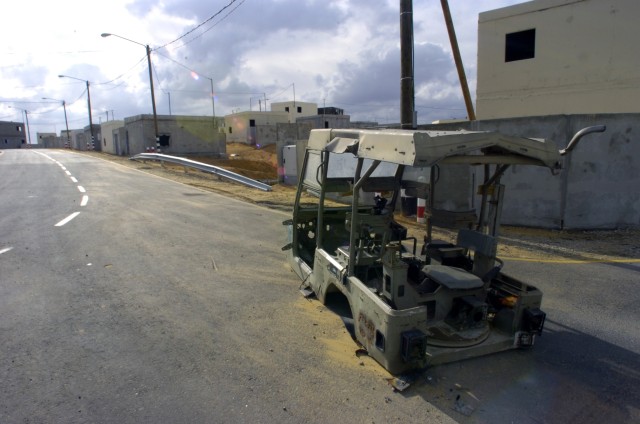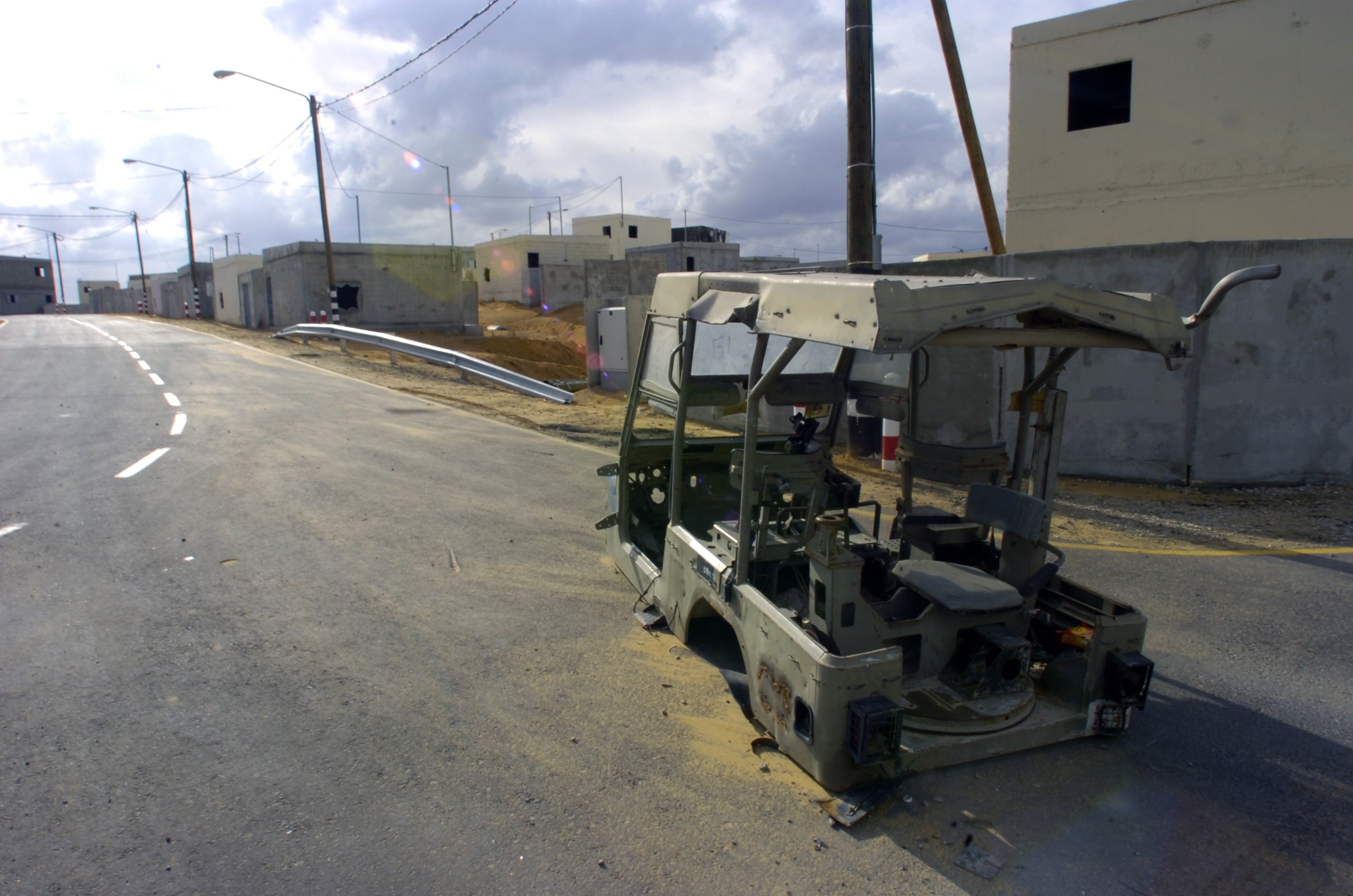BALADIA CITY, Israel (Army News Service, Jan. 14, 2008) - National Guard Soldiers could one day train at a state-of-the-art urban warfare training center in Israel, or one modeled after it, according to Lt. Gen. H. Steven Blum.
The chief of the National Guard Bureau visited the National Urban Training Center in Baladia City, Israel, last month, and called it a "world-class site."
"We probably should have a facility like that of our own," Blum said, "in the interim, we should explore the opportunities to train here."
From a distance, it looks like a bustling desert town. But it's a purpose-built mock-up on a real-life scale designed as a training ground for military operations in urban terrain, or MOUT.
Blum and other National Guard leaders toured the NUTC with Israeli Defense Forces officers during a four-day visit to Israel to bolster the Bureau's relationship with the IDF Home Front Command and discuss joint exercises and other possible exchanges under the aegis of the U.S. European Command.
The 7.4-square-mile NUTC is at the IDF's National Center for Ground Force Training in the Negev Desert, west of the Gaza Strip and north of Egypt. The 4,700-square-mile Negev covers more than half of Israel and includes thousands of miles of open space ideal for the country's premier military training facility.
Some 472 structures line four miles of roads in this concrete town dubbed Baladia City.
"It is the most realistic, extensive replication of the sort of urban area typical of this region of the world that I've ever seen," Blum said.
The NUTC includes high-rise buildings typical of business or high-density residential districts, streets lined with single-story buildings, a complex tunnel system and labyrinthine areas typical of some older Middle Eastern city centers. A stripped vehicle blocking a road adds to the realism.
"It is just such a superb training facility for all the nuances and the situational awareness and the battlefield conditions that Soldiers face in this part of the world," Blum said.
Soldiers have lost their way training here. They are found thanks to force-identification and location systems built in to the training area.
Every movement is recorded, every building bristles with sensors and every troop is wired for after-action review.
"I'd like to see Soldiers go through a facility like this somewhere before they deploy to counterinsurgency missions abroad," Blum said. "You get the advantage of the identical climate, the same geography, topography. You have the benefit of being in the environment, yet you're totally secure and you're able to train."
When the topography doesn't exactly match training requirements, the Israelis bring in bulldozers that move the desert sand until it more closely resembles what trainers need.
"It's a first-rate place," Blum said. "It couldn't be more realistic unless you let people actually live there."
(Staff Sgt. Jim Greenhill writes for the National Guard Bureau. Master Sgt. Bob Haskell Times and other sources contributed to this report.)




Social Sharing